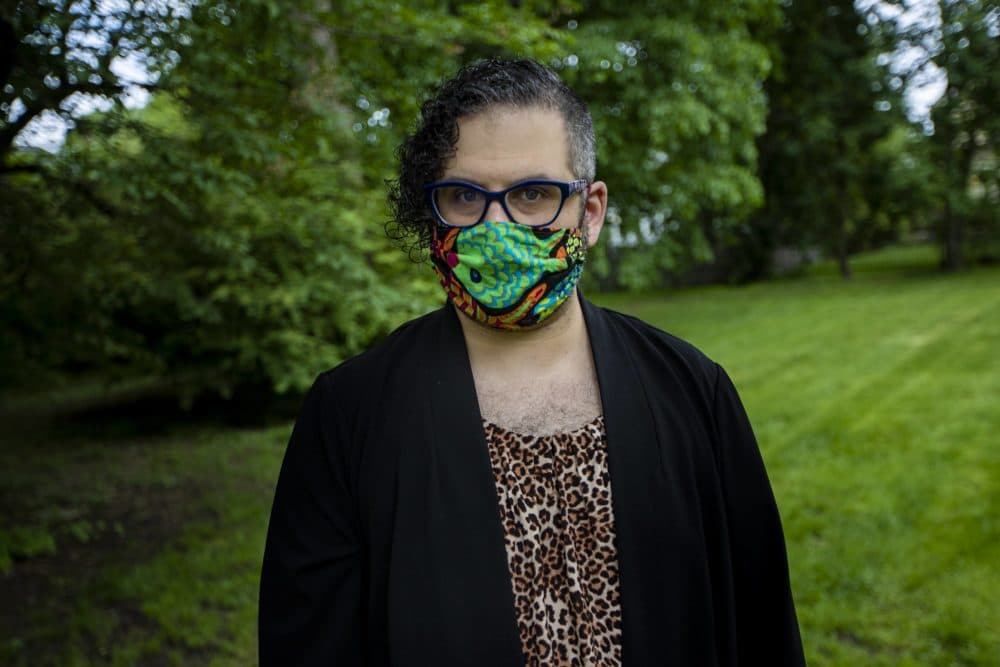Advertisement
Hundreds Of Non-Tenure-Track Faculty Face Losing Their Jobs. Their Students Are Upset.

Clarissa Eaton says she feels like she's on the front line at UMass Boston, because she and other non-tenure track faculty are the ones who connect the most with students.
"We're there at the beginning," Eaton said. "We're teaching the smaller classes sometimes. We're the ones that they'll stop by our office hours and just chat, so I think it's going to be a really hard blow to the students because they're losing a connection."
Francoise Kayamba is one the students who could lose her connection with Eaton.
"She is a wonderful, wonderful professor," Kayamba said. "And she's really a professor who truly cares about her students. She would ask us how we're doing in class. We would meet with her and actually build a rapport."
As colleges face increasing financial uncertainty during the pandemic, hundreds of faculty members in Boston could lose their jobs.
Students are coming to their defense.
UMass Boston has told Clarissa Eaton and half its non-tenure track faculty that they may not be reappointed this fall.
"We hope to be able to re-appoint some of them," a spokesman for UMass Boston said in a statement to WBUR. "[B]ut that is not a decision we can make until our financial outlook for [the next academic year] becomes clearer."
Across the river, Alex Corey, a lecturer in history and literature at Harvard, expects to be laid off at the end of the month.
"And lose my health insurance and to lose my salary," Corey said. "I'm the primary provider of both salary and benefits at this moment in my family and also I have pre-existing conditions that make me particularly concerned about my being especially impacted by COVID-19, because I have asthma."
Corey worries about the students, like Natalie Gale. She calls Corey the most influential professor she's had.
Advertisement
"Alex will not be around going forward, will not be there when I write my thesis, and there's no guarantee that there will be someone in the Hist and Lit department who does have those research interests," she said.
Eight of her nine professors are leaving this year.

A non-tenure track tutor transformed Courtney DeLong's Harvard experience.
She was miserable her first year, especially in one math and one economics class.
"I had a couple classes where I just — I hated them," DeLong said.
Her sophomore year, she enrolled in an independent study with Lowell Brower, the head tutor in the folklore and mythology department.
"We just got so much one-on-one feedback from him, because he was actually available to us, unlike a lot of bigger professors are," DeLong said. "I went from really hating school to really, really loving it really quickly."
So much, she declared folklore and mythology her major.
DeLong will be a senior this fall. She's upset that Harvard is not extending the contracts of about half its non-tenure track faculty as they face the worst job market since the Great Depression.
"A lot of the non-tenure track faculty are people who, in my experience, go so above and beyond to actually help us grow as people, as thinkers, as learners," DeLong said. "And it makes me really angry, honestly, because these are people who, for the most part, have been so integral to my education."
DeLong said non-tenure track faculty have been the backbone of her education. And she's not alone. This year, with the support of students, non-tenure track faculty petitioned Harvard to extend their contracts in recognition of the health and economic catastrophe the United States is suffering. So far, Harvard has not responded.
That angers Saul Glist, who will be a junior this fall.
"The idea that Harvard would not automatically renew its contracts with non-tenure-track faculty is infuriating," he said.
Glist is studying Yiddish and history and literature. He estimates at least half of his classes have been taught by non-tenure track faculty.
"Every freshman who goes through expository writing: non-tenure-track faculty," Glist said. "Anyone who takes a language at Harvard: almost all of the language instruction is taught by non-tenure track faculty."
At Harvard, non-tenure track faculty have to leave after a set number of years. It's called timing out. Glist said it's something Harvard undergraduates constantly have to think about.
"Harvard has a pretty weak advising system because your academic advisors are constantly timing out," Glist said. "You have to worry not just about who's teaching the classes that interest you the most or whose research interests align most clearly with your own, but you're constantly worried about if they're going to time out while you're in the middle of writing your thesis."
A spokeswoman for Harvard said in some cases non-tenure track faculty were granted an extension in certain academic areas. In others, she said, the university made new hires based on academic need.
But students worry that some of their favorite professors might be pushed out during a major economic and public health crisis.
This segment aired on June 8, 2020.
